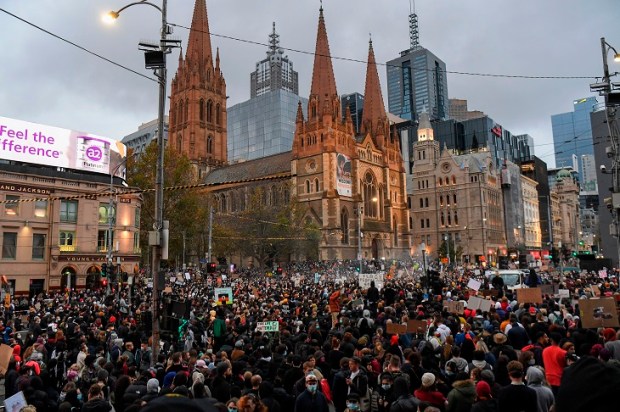The growing debate around international students ultimately comes down to a single question: Does the government think housing for Australians is more important than education for foreign students?
Labor has now committed to capping the growth of international student numbers, meaning numbers will still grow, but not as quickly, dropping it from 15 per cent to 5 per cent growth per year. On the other end, the Liberals have also called for ‘cuts’, but won’t say by how much. Not exactly the confident reaction many were hoping for…
Meanwhile, rent prices across the country are out of control, fuelling a worsening cost of living crisis, and demand for homelessness services is rising by the day. With the RBA Governor Michele Bullock stating in her last address that ‘massive’ immigration levels ‘adds to demand’ and has ‘put big pressure on the housing market’.
Despite this, the government has nevertheless baulked at the idea of putting hard caps on the number of international students in the country.
‘It would be cutting off our nose to spite our face,’ a Labor source told the Australian Financial Review. But whose face do they mean, Labor’s or Australia’s?
The article explains that the government is ‘also sensitive to the politics of alienating voters in the large Chinese and Indian communities, whose countries of origin have been the most lucrative source of foreign students’.
Meaning this: Labor now thinks keeping the international student intake high is more important than actually solving the housing crisis. How far our politics has fallen.
Which might also explain the incredible position we find ourselves in. An astonishing 713,000 international students are in Australia – meaning 1 in 37 people in the country right now is a foreign student. Compare this with the USA, whose ratio is closer to 1 in 333, and you realise how markedly unique Australia’s problem is.
Nobody blames foreign students for wanting a decent education, but with record low housing affordability, does teaching foreign students really rank higher than housing Australians?
‘I am 27 years old and today I am moving back in with my parents. This is not the plan I had for 27-year-old me.’ To see how hard Labor’s immigration intake is hitting younger generations, you simply need to look online.
Reddit posts ranting about ridiculous rent hikes, TikTokers posting teary explainers about living paycheck-to-paycheck, others recording in dismay the dilapidated and overpriced home they’ve been forced into.
It might be tempting for older generations to scoff at young people doing it tough, especially when a loud minority of them protest for policies which actively make the country poorer. But despite that, theirs is one of the first generations to be looking down the barrel of continued downward social mobility; stifled wages, a hostile housing market, and shattered social cohesion. Yes, some of them might pitch tents for Palestine in elite university campuses across capital cities, but elsewhere, an average young battler is asking themselves where they’ll camp if evicted.
The other grand tragedy in the housing-turned-immigration debate is that while a younger voter from the left can find a voice in the likes of the Greens, the average young Aussie doesn’t have a serious political home to get behind. This means that while left-wing protest parties now get to push real policy outcomes in Canberra, the young punter’s protest vote fails to translate into any material living improvement. For the young of Australia, political homelessness is now translating into real homelessness.
But there are a number of easy solutions to the housing crisis lying in wait for any enterprising political force.
The first would be to follow the advice of a report by UK think tank Onward, which last month urged the government to ‘slash student visas’, close ‘backdoor’ routes to residency, shift focus away from ‘low quality’ institutions, and lower immigration targets to the ‘tens of thousands’.
The second, and more substantive option, is to double down on offshore study: there are right now 178,000 ‘offshore’ students, studying in ‘Australian higher education courses without coming to Australia’. Switching to a model that incentives ‘offshoring’ will go a long way to freeing up housing, rents and homelessness – and will keep the money coming in.
Labor and the Coalition are right. There are solutions to the current housing crisis – it’s just not theirs. If they don’t want to make the tough decisions needed to solve it, Aussies will find – or form – a group that will.
Jordan Knight is a director of The National Conservative Institute of Australia, founder of Migration Watch Australia and adviser to Independent MP Rod Roberts.

























